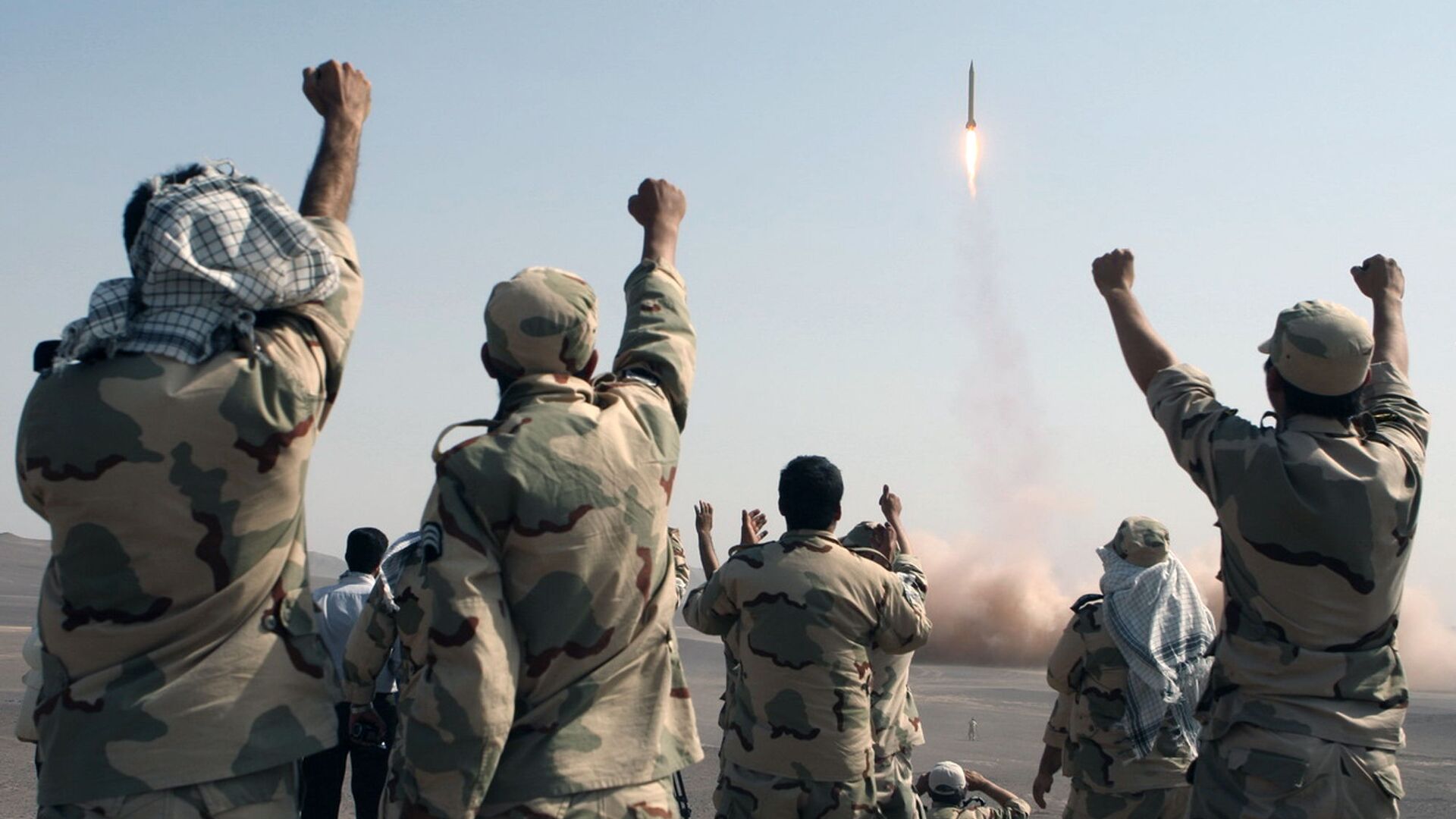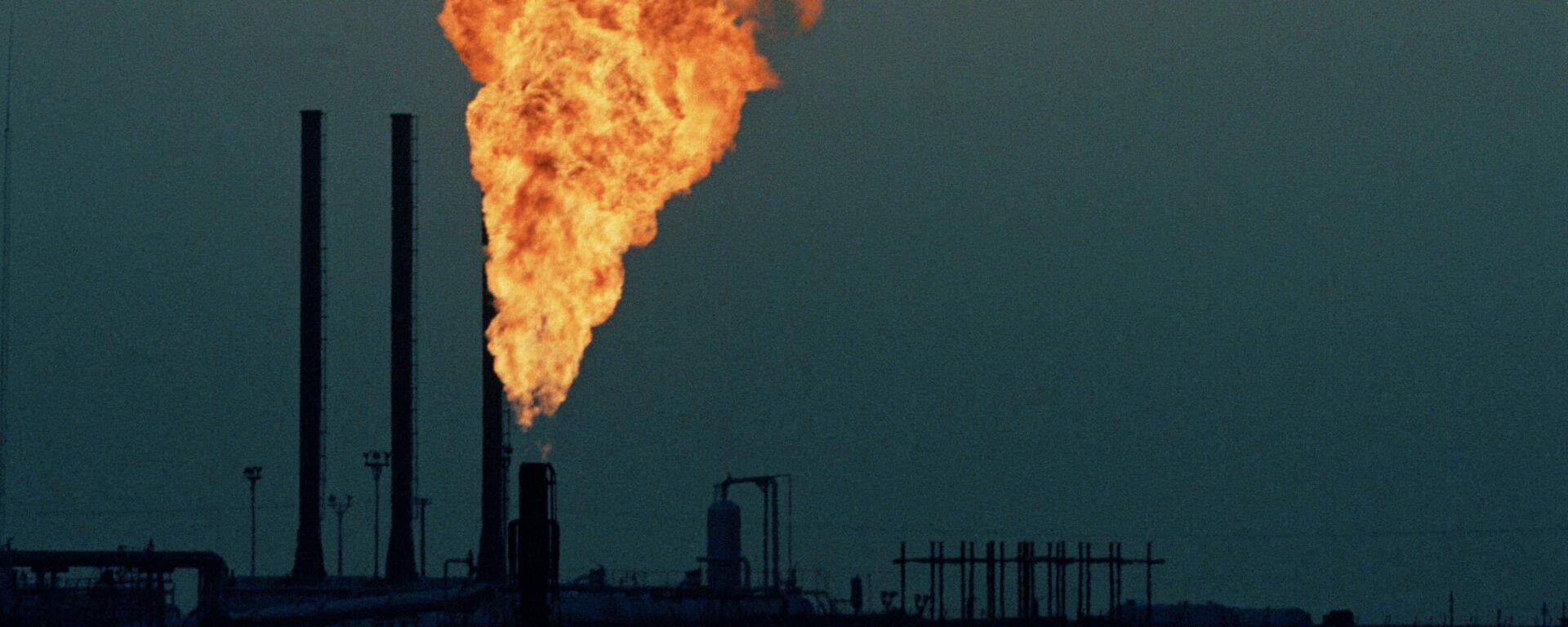https://en.sputniknews.africa/20240418/1066130868.html
IRGC Does Not Rule Out Revision of Iran's Nuclear Policy Due to Israeli Threats
IRGC Does Not Rule Out Revision of Iran's Nuclear Policy Due to Israeli Threats
Sputnik Africa
The Iranian government has maintained for years that it has no intention of developing nuclear weapons and that its development of nuclear energy is purely... 18.04.2024, Sputnik Africa
2024-04-18T14:18+0200
2024-04-18T14:18+0200
2024-04-18T14:18+0200
israel-palestine escalation
iran
israel
syria
iran’s islamic revolutionary guard corps (irgc)
israel defense forces (idf)
middle east
nuclear weapons
https://cdn1.img.sputniknews.africa/img/07e8/04/12/1066131033_0:50:2000:1175_1920x0_80_0_0_cf9235218a64cefa773919a92e3548b0.jpg
In response to potential threats from the Israel against Iran's nuclear facilities, Brigadier General Ahmad Haqtalab, commander of Iran's Nuclear Centers Protection and Security Corps of the IRGC warned that any aggression against Iran would result in a forceful response, comparing it to the historical True Promise operation.Iran may also reconsider its nuclear policy in the light of the threat from Israel.Speaking to Tasnim news agency, the commander asserted that Iran is ready to repel any Israeli attacks on its nuclear facilities, as it has identified the location of "all Israeli nuclear facilities" and is ready to strike at them at any moment in case of aggression by Tel AvivHaqtalab emphasized that Iran has long faced threats, including sabotage and terrorism, from Israel.Haqtalab highlighted Iran's adherence to international protocols governing nuclear facilities' protection while underscoring the nation's preparedness to counter any aggression. Referring to recent attacks on Iranian interests, including the Iran's embassy compound in Syria, Haqtalab credited Iran's defensive measures and advanced facilities for ensuring the safety of its nuclear complexes.On April 13, Iran's Islamic Revolutionary Guard Corps (IRGC) launched a massive drone and missile attack on Israel in response to Israel’s airstrike on the consular annex building adjacent to the Iranian Embassy in Damascus on April 1. The attack then destroyed the building and killed seven members of the IRGC, including two generals. Tehran pledged to retaliate.According to Iranian Armed Forces Chief of Staff Mohammad Bagheri, the True Promise operation was aimed at striking Israel’s intelligence center located in the Jabal ash Shaykh mountain range along the border with Syria, which provided the information for the attack on the Iranian Embassy in the Syrian capital of Damascus, as well as the Nevatim air base, which housed F-35 fighter jets. Bagheri told Fars news agency on April 14 that the facilities were largely destroyed and left inoperable.The New York Times reported, citing two Israeli officials, that Iran had launched 185 drones, 36 cruise missiles and 110 surface-to-surface missiles. Israel Defense Forces spokesman Daniel Hagari said Israel had intercepted 99% of the aerial targets fired by Iran, including all attack drones.
https://en.sputniknews.africa/20240417/1066112824.html
iran
israel
syria
middle east
Sputnik Africa
feedback@sputniknews.com
+74956456601
MIA „Rossiya Segodnya“
2024
Sputnik Africa
feedback@sputniknews.com
+74956456601
MIA „Rossiya Segodnya“
News
en_EN
Sputnik Africa
feedback@sputniknews.com
+74956456601
MIA „Rossiya Segodnya“
Sputnik Africa
feedback@sputniknews.com
+74956456601
MIA „Rossiya Segodnya“
iran, israel, syria, iran’s islamic revolutionary guard corps (irgc), israel defense forces (idf), middle east, nuclear weapons
iran, israel, syria, iran’s islamic revolutionary guard corps (irgc), israel defense forces (idf), middle east, nuclear weapons
IRGC Does Not Rule Out Revision of Iran's Nuclear Policy Due to Israeli Threats
The Iranian government has maintained for years that it has no intention of developing nuclear weapons and that its development of nuclear energy is purely peaceful.
In response to potential
threats from the Israel against Iran's nuclear facilities, Brigadier General Ahmad Haqtalab, commander of Iran's Nuclear Centers Protection and Security Corps of the IRGC warned that any aggression against Iran would result in a forceful response, comparing it to the historical True Promise operation.
Iran may also reconsider its nuclear policy in the light of the threat from Israel.
"If Israel attempts to use the threat of attacking our country's nuclear centers as a means to pressure Iran, it is possible and conceivable that the Islamic Republic may reconsider its nuclear doctrine and policies, potentially deviating from previously announced stances," Haghtalab was quoted as saying by Tasnim news agency.
Speaking to Tasnim news agency, the commander asserted that Iran is ready to repel any Israeli attacks on its nuclear facilities, as it has identified the location of "all Israeli nuclear facilities" and is ready to strike at them at any moment in case of aggression by Tel Aviv
Haqtalab emphasized that Iran has long
faced threats, including sabotage and terrorism, from Israel.
"From the very beginning, Iran was ready to counter threats from Israel. Thanks to the use of passive defense plans, as well as the most modern weapons, thanks to the dispersal of nuclear facilities throughout Iran, we are ready to counter any threat from Israel to our nuclear facilities," Haghtalab said.
Haqtalab highlighted Iran's adherence to international protocols governing nuclear facilities' protection while underscoring the nation's preparedness to counter any aggression. Referring to recent attacks on Iranian interests, including the Iran's embassy compound in Syria, Haqtalab credited Iran's defensive measures and advanced facilities for ensuring the safety of its nuclear complexes.
On April 13, Iran's Islamic Revolutionary Guard Corps (IRGC) launched a massive
drone and missile attack on Israel in response to Israel’s airstrike on the consular annex building adjacent to the Iranian Embassy in Damascus on April 1. The attack then destroyed the building and killed seven members of the IRGC, including two generals. Tehran pledged to retaliate.
According to Iranian Armed Forces Chief of Staff Mohammad Bagheri, the True Promise operation was aimed at striking Israel’s intelligence center located in the Jabal ash Shaykh mountain range along the border with Syria, which provided the information for the attack on the Iranian Embassy in the Syrian capital of Damascus, as well as the Nevatim air base, which housed F-35 fighter jets. Bagheri told Fars news agency on April 14 that the facilities were largely destroyed and left inoperable.
The New York Times reported, citing two Israeli officials, that Iran had launched 185 drones, 36 cruise missiles and 110 surface-to-surface missiles. Israel Defense Forces spokesman Daniel Hagari said Israel had intercepted 99% of the aerial targets fired by Iran, including all attack drones.


